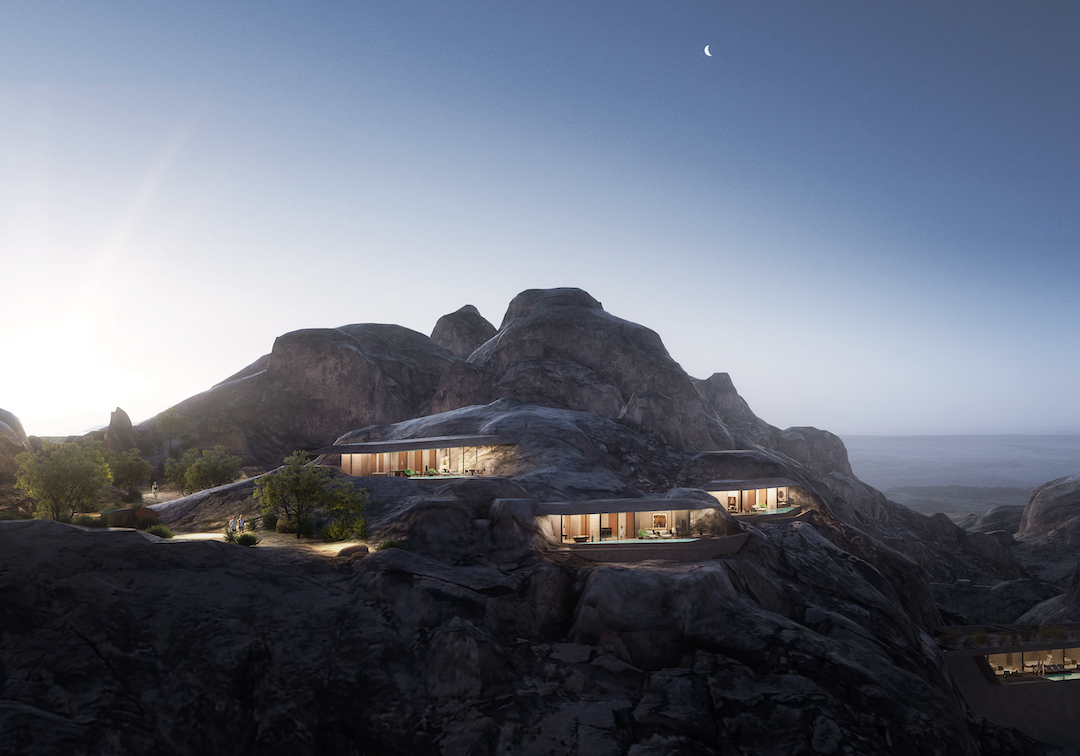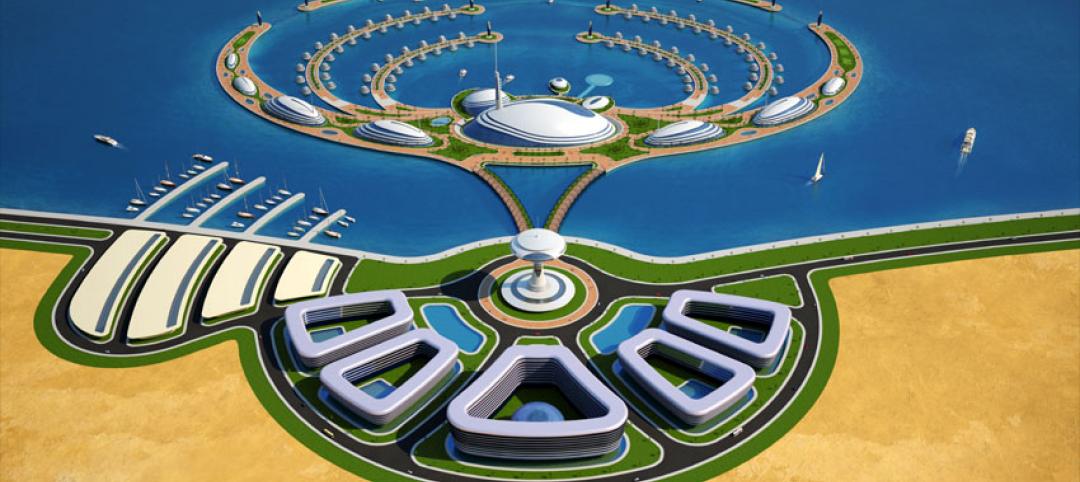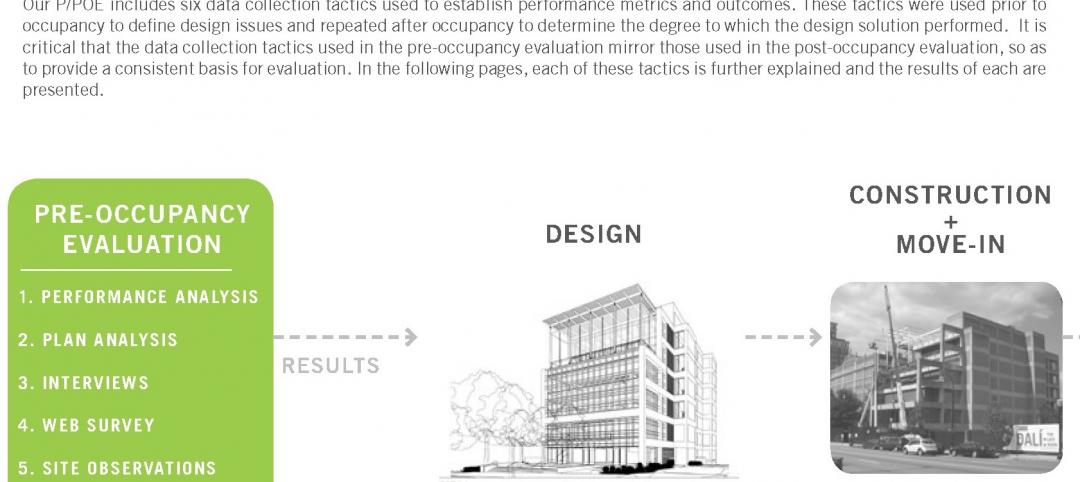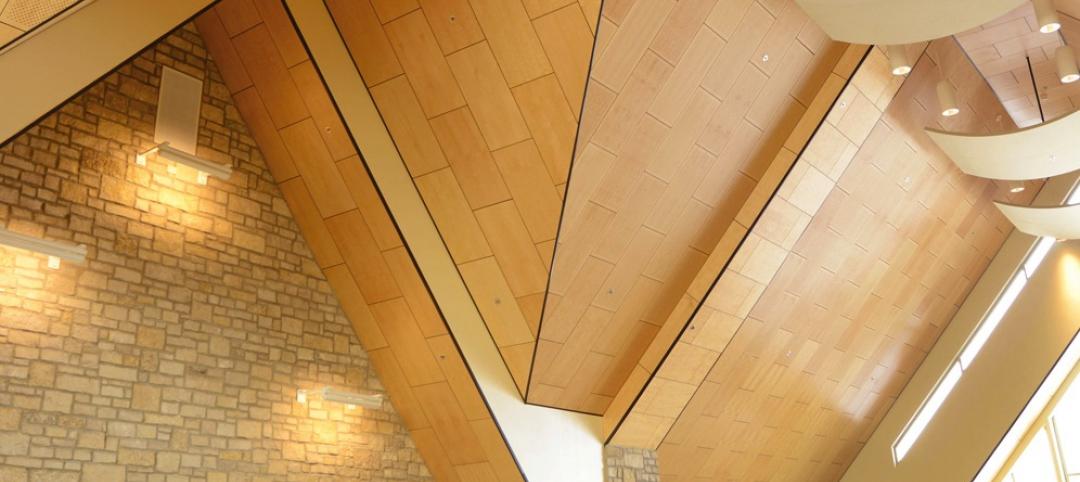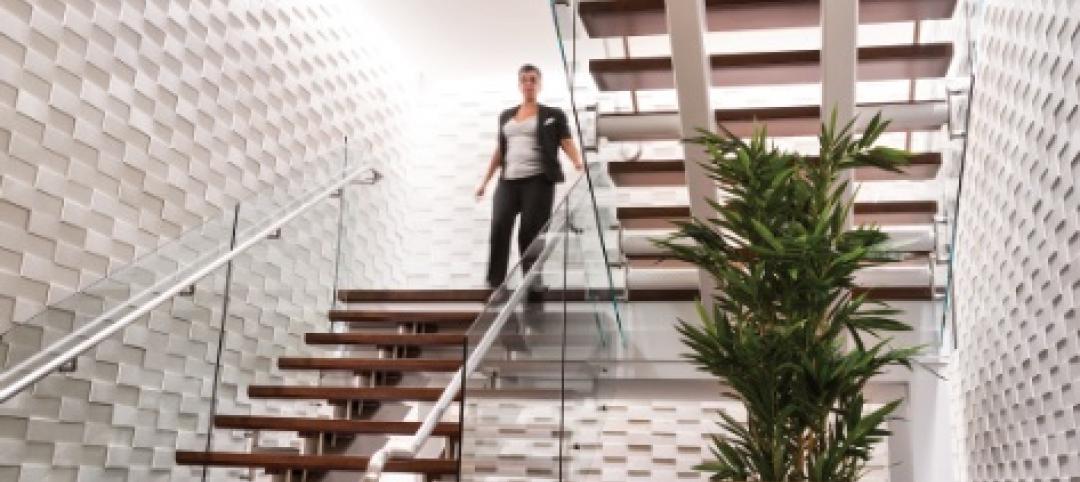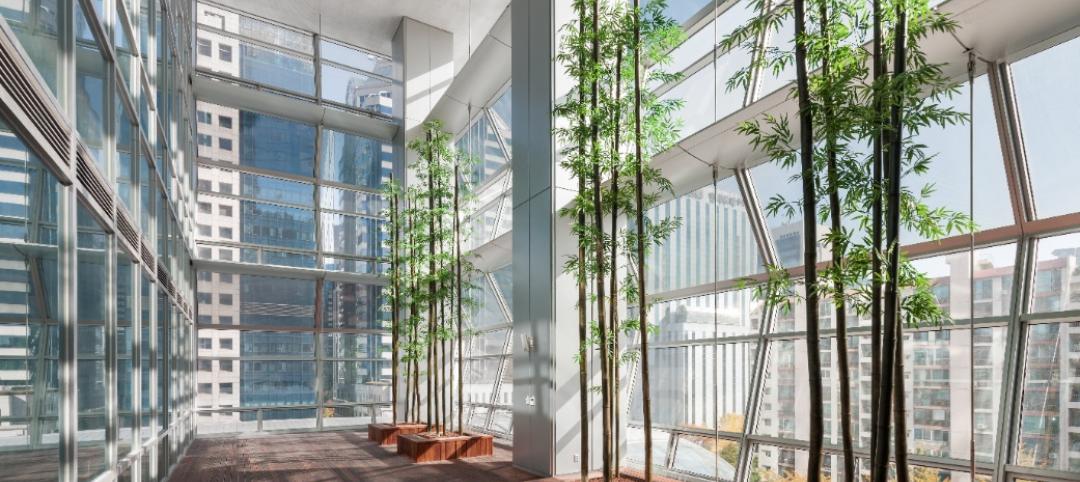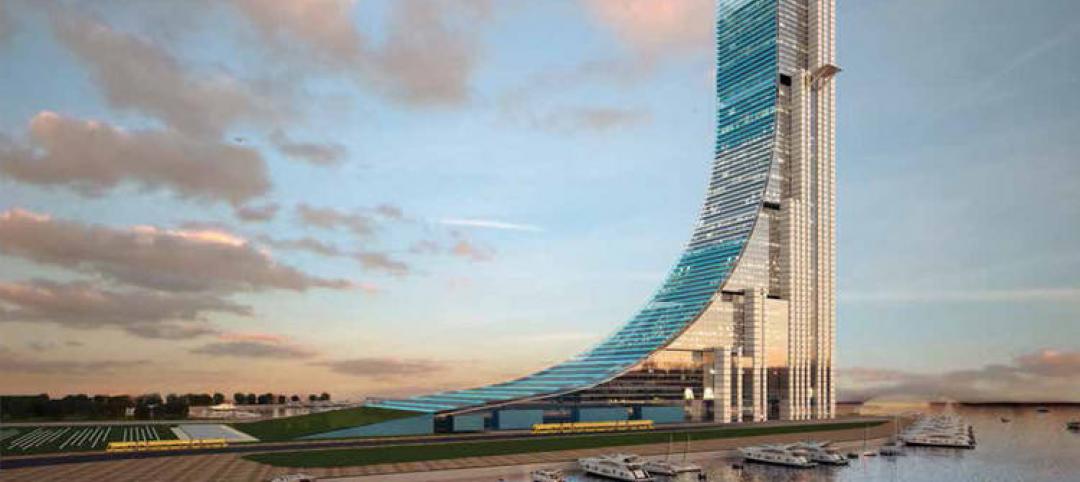A new resort has broken ground in Saudi Arabia with the goal of redefining the concept of sustainable architecture. Dubbed Desert Rock, the project is the first inland resort of The Red Sea Project, a destination comprising 50 resorts, 8,000 hotel rooms, and 1,000 residential properties across 22 islands and six inland sites.
The resort will not be built on a mountainside but will instead be carved directly into the ancient rock itself. The materials removed to carve into the site will then be reused to create the resort’s infrastructure.
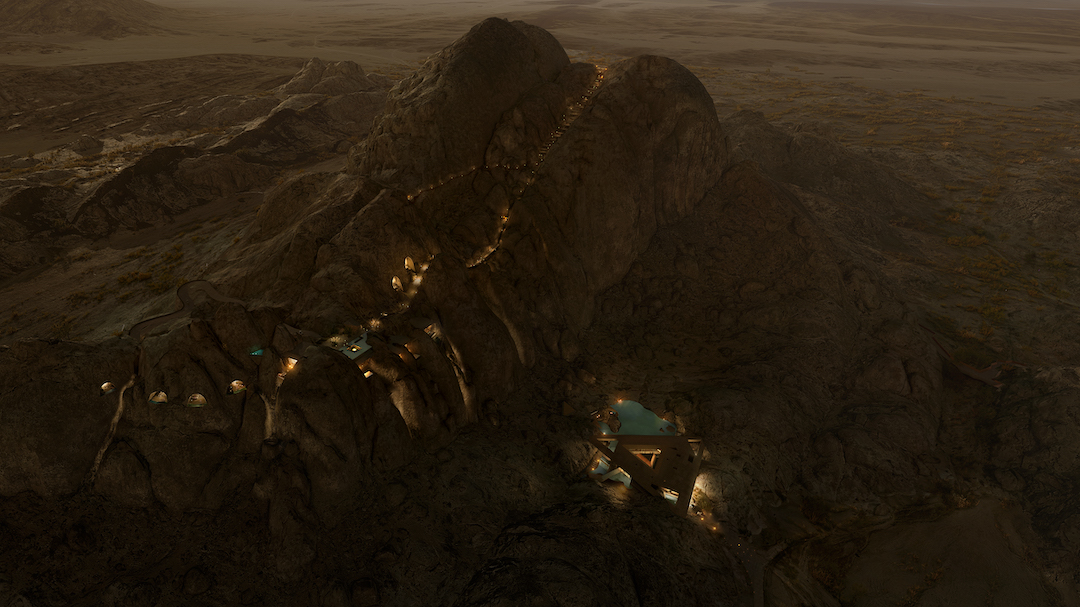
The ground stone and existing sand will be used for concrete aggregate, which will be the main building material for all the architecture. Using the excavated material to build the project will ensure that it will have the same integral colors as the surrounding landscape, further immersing the architecture in its setting. Water retention and distribution systems will be used throughout the site, with harvested rainwater used to create a more green, flourishing wadi.
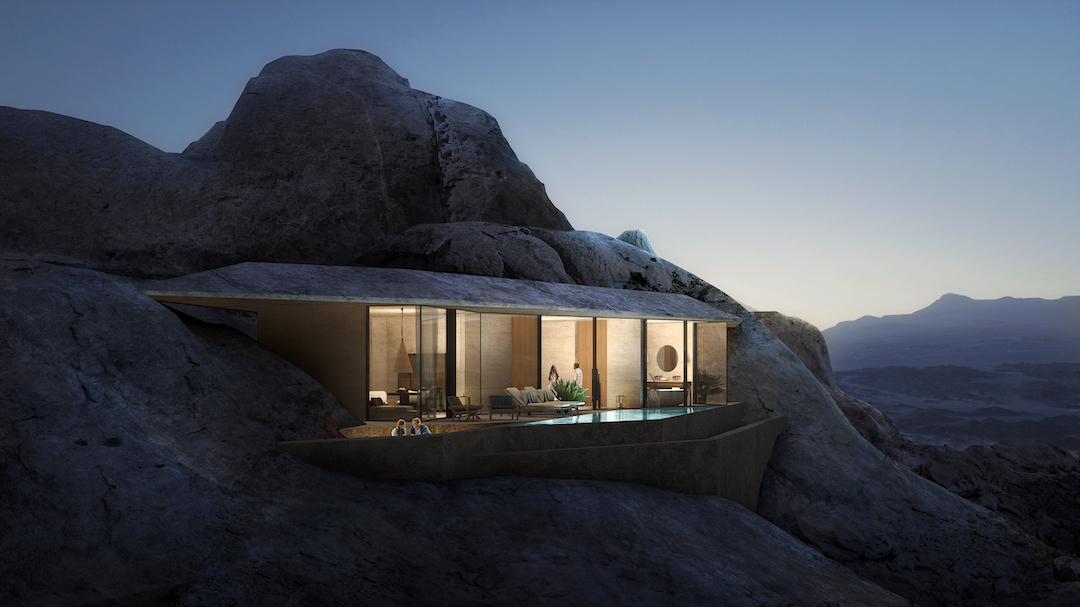
Desert Rock will feature 48 luxury villas and 12 hotel rooms that all offer panoramic views of the surrounding desert. A range of accommodation will be available, from ground level dwellings to crevice hotel suites midway up the mountain. A select number of excavated rooms will be located within the rock massif itself.
Resort amenities will include a spa and fitness center, remote destination dining areas, and a feature lagoon oasis. Guests will be able to hike, use dune buggies, and star gaze as part of the site-wide activities program.
Oppenheim Architecture designed the project. The Red Sea Development Company is the developer. Desert Rock is slated to welcome its first guests by the end of 2022.
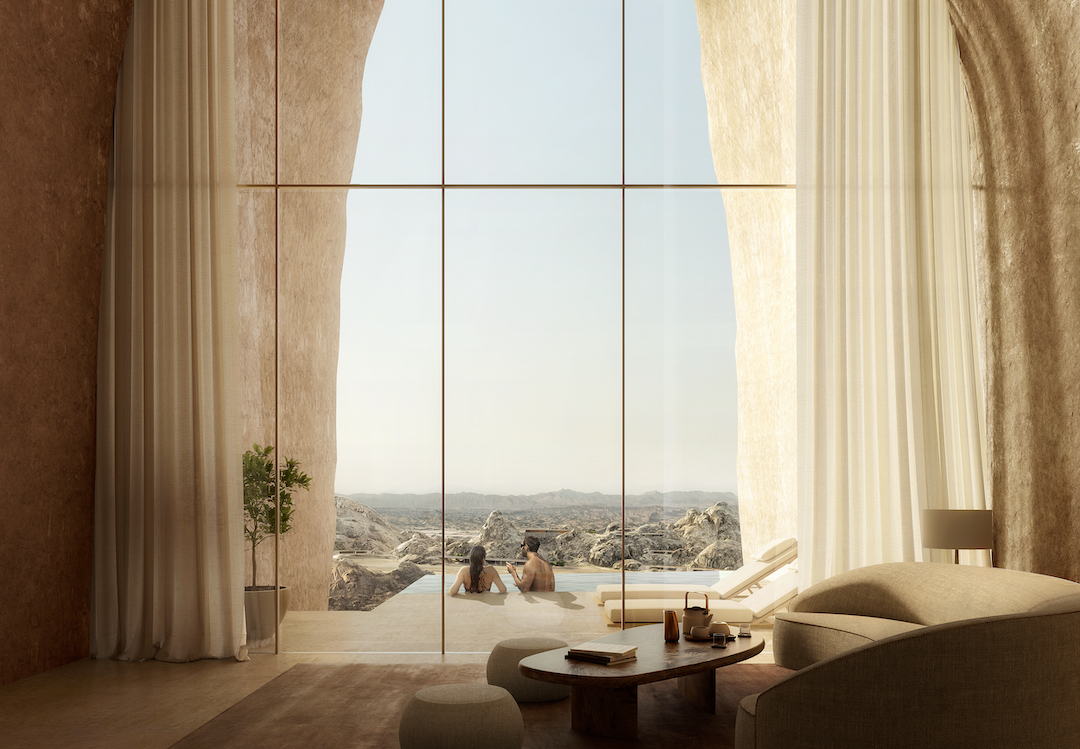
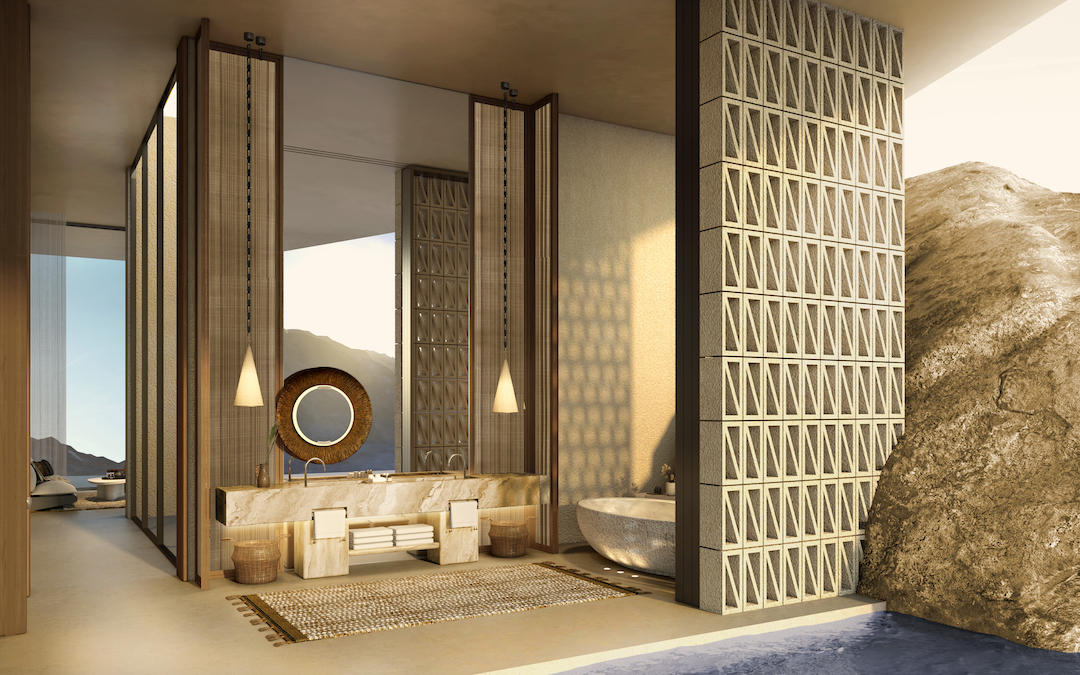

Related Stories
| Sep 24, 2014
Must see: Semi-submerged hotel planned for Qatar's man-made island
Plans for a new hotel in the Persian Gulf are taking Dubai’s Palm Islands concept to a whole new level—underwater, that is.
| Sep 24, 2014
Architecture billings see continued strength, led by institutional sector
On the heels of recording its strongest pace of growth since 2007, there continues to be an increasing level of demand for design services signaled in the latest Architecture Billings Index.
| Sep 22, 2014
4 keys to effective post-occupancy evaluations
Perkins+Will's Janice Barnes covers the four steps that designers should take to create POEs that provide design direction and measure design effectiveness.
| Sep 22, 2014
Sound selections: 12 great choices for ceilings and acoustical walls
From metal mesh panels to concealed-suspension ceilings, here's our roundup of the latest acoustical ceiling and wall products.
| Sep 16, 2014
Ranked: Top hotel sector AEC firms [2014 Giants 300 Report]
Tutor Perini, Gensler, and AECOM top BD+C's rankings of design and construction firms with the most revenue from hospitality sector projects, as reported in the 2014 Giants 300 Report.
| Sep 15, 2014
Ranked: Top international AEC firms [2014 Giants 300 Report]
Parsons Brinckerhoff, Gensler, and Jacobs top BD+C's rankings of U.S.-based design and construction firms with the most revenue from international projects, as reported in the 2014 Giants 300 Report.
| Sep 15, 2014
Argentina reveals plans for Latin America’s tallest structure
Argentine President Cristina Fernández de Kirchner announces the winning design by MRA+A Álvarez | Bernabó | Sabatini for the capital's new miexed use tower.
| Sep 9, 2014
Using Facebook to transform workplace design
As part of our ongoing studies of how building design influences human behavior in today’s social media-driven world, HOK’s workplace strategists had an idea: Leverage the power of social media to collect data about how people feel about their workplaces and the type of spaces they need to succeed.
| Sep 7, 2014
Behind the scenes of integrated project delivery — successful tools and applications
The underlying variables and tools used to manage collaboration between teams is ultimately the driving for success with IPD, writes CBRE Healthcare's Megan Donham.
| Sep 3, 2014
New designation launched to streamline LEED review process
The LEED Proven Provider designation is designed to minimize the need for additional work during the project review process.


